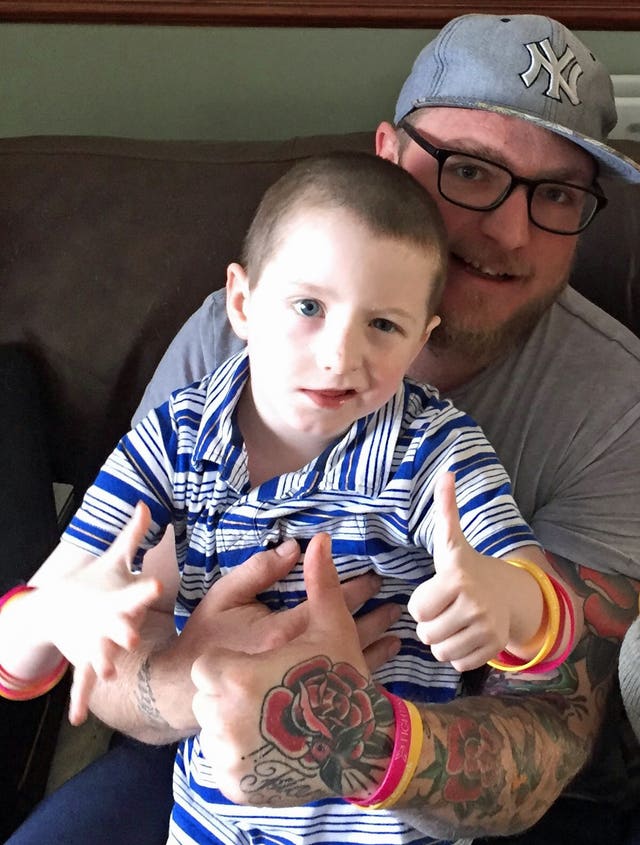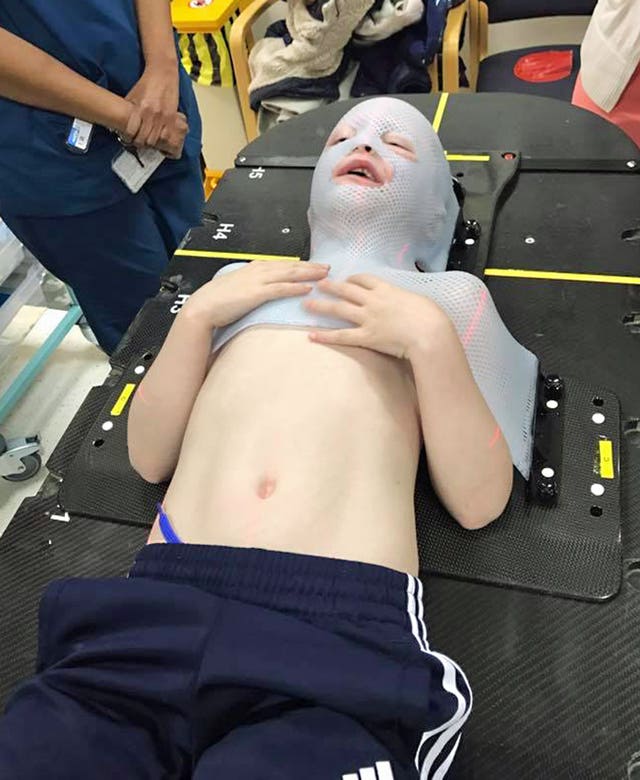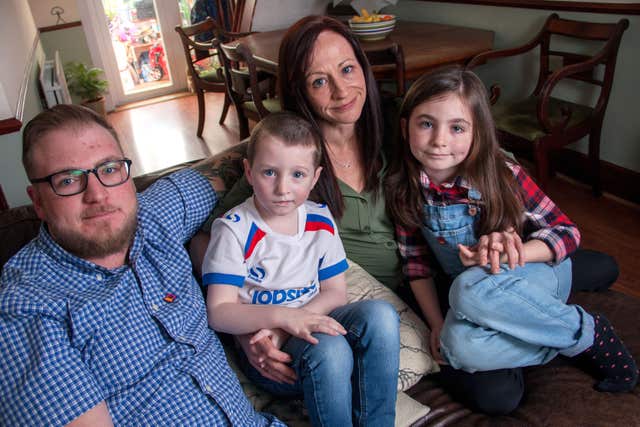
The mother of a six-year-old boy diagnosed with a potentially lethal brain tumour has spoken of her anger that he will receive radiotherapy away from home because of a lack of specialists to treat him.
Harry St Ledger, from Portchester, Hampshire, is to travel to London’s University College Hospital where he will stay with his mother, Fiona Lear, for five days a week over six weeks.
The youngster will undergo the treatment starting on Thursday dressed as Spider-Man, including a radiotherapy mask decorated with the features of his favourite superhero.

Harry has a very rare type of tumour similar to a diffuse intrinsic pontine glioma (DIPG) which has “an unbearably stark prognosis and very limited treatment options,” according to the charity Brain Tumour Research, which is supporting him.
Ms Lear, 46, said: “This may well be the only treatment option open for us and we know that not all children respond.
“After that the pathway is, sadly, one of rapid deterioration and the average survival time after diagnosis is just nine to 12 months. At this stage we cannot begin to think what may lie ahead if this doesn’t work.”
Harry, known to his family as Harryboy, was diagnosed last week after being struck down by an ear infection early in the New Year.

He was originally treated at Queen Alexandra Hospital in Portsmouth and then at Southampton General Hospital, but his radiotherapy will have to take place in London and the family say this is because of a shortage or radiographers locally.
His mother said the stay away from home will be hard for Harry because he has autistic spectrum disorder (ASD) and finds it hard to communicate with others.
Ms Lear said: “I am angry to think that Harry will have to live away from the security and comfort of his own home during treatment as being able to sleep in his own bed and have his own things around him every night would be such a comfort.
“I am frightened to think of what lies ahead, of what effect the radiotherapy will have on him, of how he will feel dreadfully sick yet extremely hungry due to the steroids which he must take to control the swelling in his brain.”

A spokesman for University Hospital Southampton NHS Foundation Trust said: “While we have no shortage of therapy radiographers in our oncology service, our paediatric clinical oncologist has sadly moved to a new hospital.
“We are therefore in discussion with colleagues at University College London Hospitals NHS Foundation Trust about the future organisation of this service.
“In the short term, the very small number of children who require radiotherapy will be receiving this treatment at University College Hospital. However, the remainder of their care is delivered with us in Southampton.”


Comments: Our rules
We want our comments to be a lively and valuable part of our community - a place where readers can debate and engage with the most important local issues. The ability to comment on our stories is a privilege, not a right, however, and that privilege may be withdrawn if it is abused or misused.
Please report any comments that break our rules.
Read the rules here